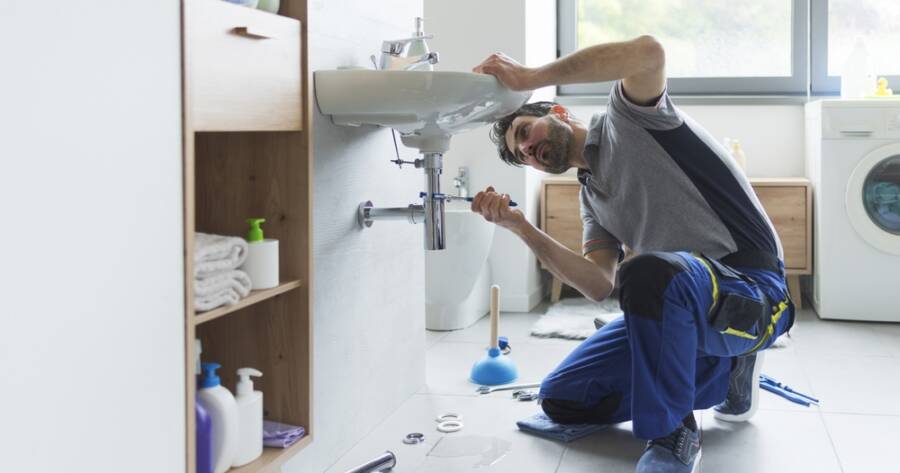Plumbing remains one of the most dependable and essential skilled trades, offering a clear pathway to stable employment and long-term growth. As homes, businesses, and entire cities rely on well-functioning water and drainage systems, trained plumbers continue to be in high demand. Those who pursue plumbing training gain practical, hands-on expertise that translates directly into real-world work. With opportunities ranging from residential service to large-scale construction, plumbing provides a rewarding career built on technical skill and problem-solving.
Why Choose Plumbing as a Career?
Plumbing is a hands-on profession that offers job security and a steady income. The need for plumbers continues to grow as cities expand and infrastructure ages. From residential repairs to large commercial projects, plumbing services are crucial to maintaining safe and functioning systems in homes and businesses.
Plumbing is also a well-paying trade. Skilled plumbers can earn competitive wages, and many have the opportunity to start their own businesses. The flexibility to work for yourself is another major draw for individuals interested in the trade. Additionally, plumbing work provides a sense of accomplishment, as plumbers often see the immediate results of their work.
What Do Plumbing Training Courses Cover?
Plumbing training courses provide a comprehensive introduction to the trade. They cover everything from basic plumbing principles to advanced techniques used in commercial projects. Some of the main areas covered include:
- Pipe installation and repair: This involves learning how to cut, fit, and join pipes of various materials like copper, PVC, and steel. Students learn how to install piping systems in homes and businesses, ensuring they are leak-free and durable.
- Plumbing codes and safety: Understanding building codes and safety regulations is an essential part of plumbing. Training courses teach students how to comply with local and national plumbing codes to ensure that installations are legal and safe.
- Water systems: Plumbing training covers the mechanics of water distribution and drainage systems. Students learn how to install, maintain, and repair water supply lines, drainage systems, and water heaters.
- Fixture installation: This includes installing sinks, toilets, bathtubs, and other fixtures. Training in this area ensures that fixtures are installed properly and that all connections are secure and leak-proof.
- Troubleshooting and repairs: One of the most important skills for a plumber is identifying and fixing problems. Plumbing courses teach students how to diagnose issues like leaks, blockages, and malfunctioning equipment, and how to repair them efficiently.
Types of Plumbing Training Courses
There are several types of plumbing training programs, ranging from short certificate courses to full apprenticeship programs. Choosing the right path depends on your career goals and how much time you can commit to training.
Certificate programs: Certificate programs are usually shorter, ranging from a few weeks to a few months. They provide the basic skills needed to start working in entry-level plumbing jobs. These programs are ideal for individuals looking to quickly enter the workforce.
Apprenticeship programs: Apprenticeships combine classroom learning with hands-on experience under the supervision of a licensed plumber. These programs typically last 3 to 5 years and are one of the most comprehensive ways to learn the trade. Apprenticeships also pay a wage, allowing you to earn while you learn.
Online plumbing courses: For those with busy schedules or who live far from training centers, online plumbing courses offer flexibility. These courses often cover theoretical aspects of plumbing, such as codes and system design, and may require some in-person practice sessions to complete hands-on skills.
Advantages of Plumbing Training
One of the biggest advantages of plumbing training is that it opens up various career opportunities. Graduates can work in residential, commercial, or industrial settings. Some may focus on repair and maintenance, while others might specialize in installing plumbing systems for new construction projects.
Training courses also prepare students for plumbing certifications, which can significantly boost career prospects. Most states require plumbers to be licensed, and completing an accredited training program is often the first step toward becoming licensed.
Building a Future With High-Demand Skills
Pursuing plumbing training sets the foundation for a career with long-term stability and diverse opportunities. As infrastructure expands and older systems require updates, skilled plumbers remain essential across residential, commercial, and industrial sectors. With proper training, individuals gain the confidence to diagnose issues, install complex systems, and perform repairs that directly improve daily life for customers and communities.
Beyond technical ability, plumbing offers strong potential for advancement. Many professionals move into supervisory roles, specialize in high-skill areas, or start their own businesses. The combination of practical training, job security, and entrepreneurial opportunity makes plumbing an appealing path for those who enjoy hands-on work and want a career that is both versatile and future-focused.

